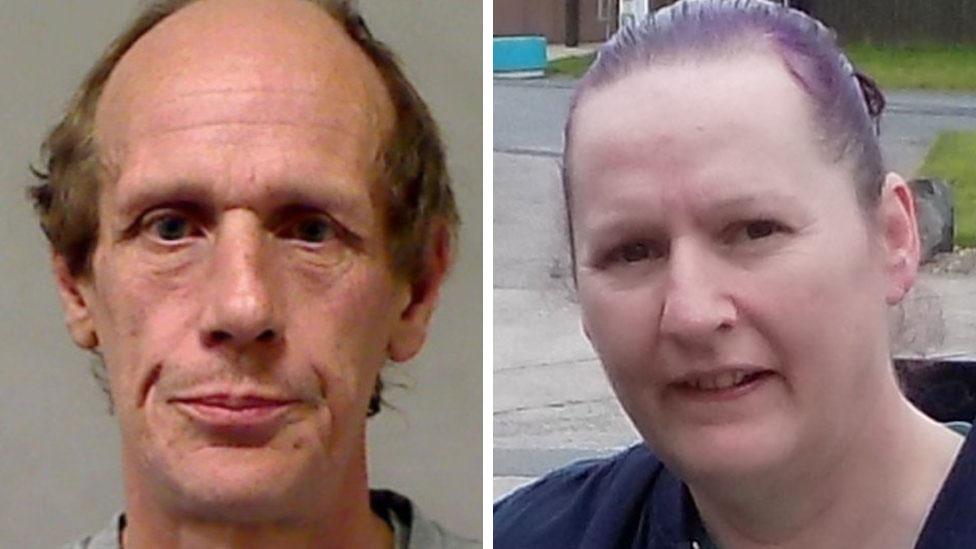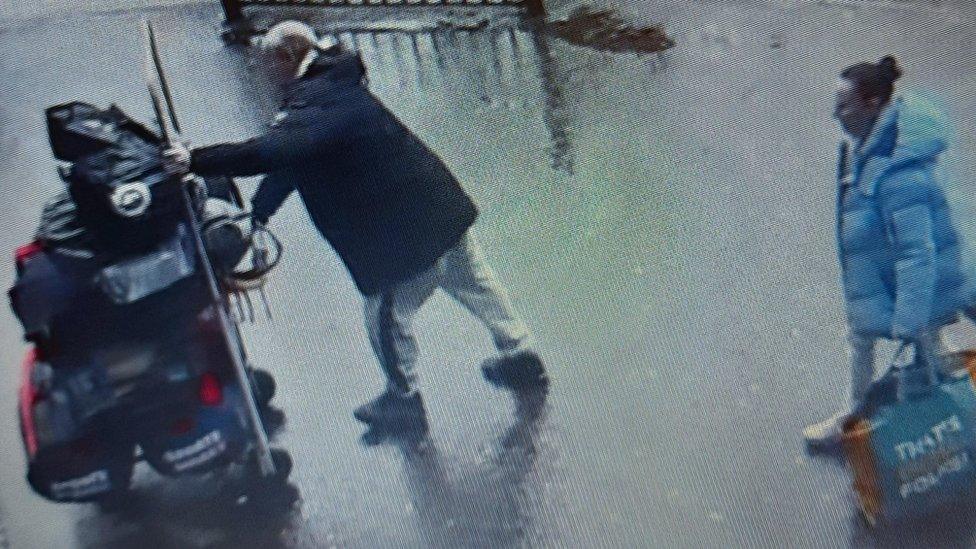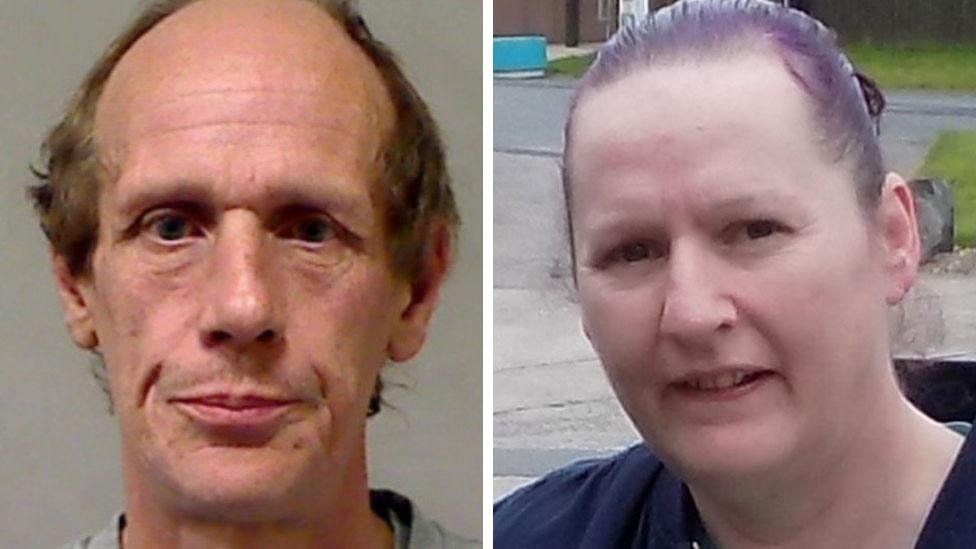Murderers Stephen McParland and Alison McDonagh sentenced for escape bid
- Published

Stephen McParland and Alison McDonagh have spent years in jail for murder
Two convicted murderers who went on the run while on temporary jail release to "start a new life in the Republic of Ireland'' have been sentenced to six months in prison.
Stephen Henry McParland, 55, and Alison Michelle McDonagh, 50, were arrested in Newry in January 2023 after a manhunt.
They pleaded guilty to being unlawfully at large.
The court heard the pair, who were on the cusp of early release, had possibly deliberately sabotaged themselves.
It was told that McParland, whose address was given as Maghaberry Prison, was convicted in 1998 for the murder of Gary Alexander McKimm in east Belfast.
His trial was told he had punched, kicked and stamped on the victim, who he had been drinking with, in a row over £20. He was sentenced to a minimum of 16 years before being eligible to apply for parole.
McDonagh, whose address was given as Hydebank Wood women's prison, was convicted in 2006 for the murder of George McDowell in Newtownabbey, County Antrim.
Known at the time as Alison Michelle Martin, she stabbed her victim in the neck after a row. She was sentenced to a minimum tariff of 12 years before being eligible for parole.

McParland and McDonagh were spotted on CCTV at a train station in Belfast with a large amount of luggage
A prosecution lawyer told the court that both defendants had been out on temporary release from prison on 21 January 2023, but failed to return.
A cross-border police manhunt was launched after the pair were spotted on CCTV at a train station in Belfast, with a large number of bags, where they "boarded a train to Dublin''.
"However, on 26 January 2023 they were returning to the jurisdiction on a train from Dublin to Belfast and were apprehended in Newry," the barrister said.
"They have been back in custody since then and that period in custody would not be taken into account as a result of any sentence imposed today.
"Both defendants have been in custody longer than the minimum tariffs they received.''
'Sabotaging his release'
When asked by Judge Mark Reel what the defendants' actions were all about, a defence lawyer for McParland described it as a "very, very strange case".
"He was on the cusp of early release," the barrister said.
"At three previous parole hearings the word 'sabotage' was used by various panels who believed that he had become institutionalised.
"Each time he was just about to be released he did something minor that set back his whole release.
"So in this particular case, it is very difficult to work out what he was doing other than that."
He added that the pair travelled to Dublin, where they met gardai (Irish police).
"An unconventional extradition took place where the gardai accompanied them on the train to Newry where they voluntarily got off, met the PSNI and were arrested.''
Asked by the judge what the large amount of luggage was about, the lawyer replied that "they had plans to start a new life together in the Republic of Ireland".
"He deeply regrets it," he added.
'Breach of trust'
"But it wasn't going to last too long.
"They had no recourse to funds and there were no state benefits available to them. It was always going to end up the way it ended.
"He will have to earn the trust of the prison authorities again and the Parole Commissioners won't release him immediately.''
A defence barrister said McDonagh was approaching almost 20 years in prison and is "now seven years post-tariff'".
"She was nine days shy of another Parole Commissioner's release when she went unlawfully at large and to say it was self-sabotage is pretty obvious,'' he said.
Passing the six-month sentence, Judge Reel said release on licence from the prison estate is an important feature of the operation of the prison system.
"Prisoners who are released in such a fashion are released on trust and when that trust is breached by a prisoner there is an important public interest in ensuring that those who breach the terms of the release are appropriately punished," he added.
Related topics
- Published26 January 2023

- Published25 January 2023
